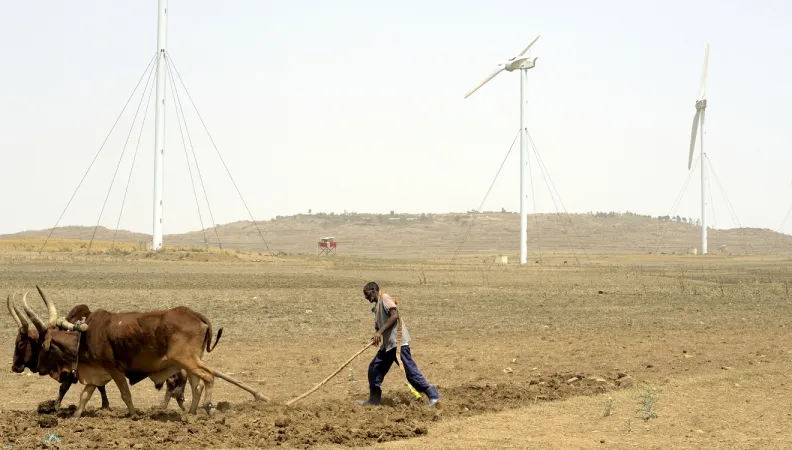Share the page
Climate and COP26: Ensuring an Innovative and Successful Energy Transition in Africa
Published on

Africa can draw on numerous assets to maintain a small carbon footprint, without impeding rapid economic growth. That's the conclusion reached by five experts in a paper published in time for COP26 in Glasgow, where leaders and experts are debating urgent climate issues. AFD has published a new policy paper exploring how financial actors can be mobilized in Africa to use innovative ways to achieve green energy transitions.
A fair transition trajectory, meeting both socio-economic and climate needs, can be achieved in Africa. That is the message issued by five AFD experts in the “Enjeux climat : réussir la transition en Afrique” (“Climate issues: achieving a successful transition in Africa”) policy paper, recently published by AFD.
The carbon footprint of Africa – the last developing region to achieve economic takeoff – remains limited to date, compared to the other continents. Indeed, its greenhouse gas emissions per capita remain half of those recorded in East Asia and Europe. In fact, they have been declining for the past 20 years.
See also: AFD group publishes its first TCFD report on managing climate-related financial risks
The continent has numerous advantages that could enable it to limit its carbon footprint and avoid the highly carbonized growth trajectory observed in other regions of the world over the past 40 years. However, the authors of the paper note that to this end, it needs to accelerate its investments in decarbonization solutions.
To succeed, strong commitments in support of climate issues will need to be made by both African and international stakeholders. Only increased technical and financial support from African governments, funding bodies, African and international public development banks, will enable the provision of funding and support for the fast-growing climate innovation in Africa, according to the policy paper’s authors, adding that investments will also need to come more generally from the continent’s financial players.
→ Read the policy paper: “Enjeux climat : réussir la transition en Afrique” (“Climate issues: achieving a successful transition in Africa”).
